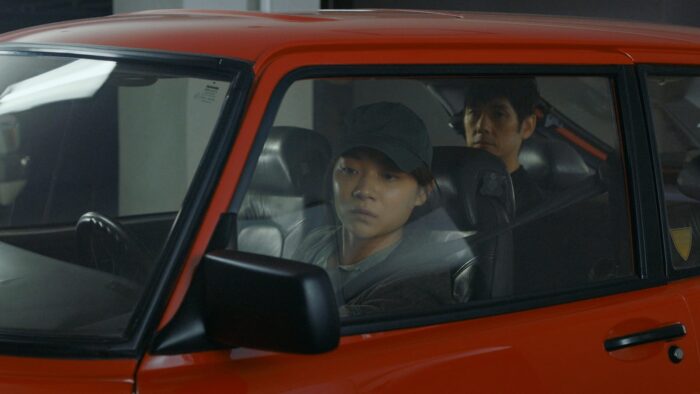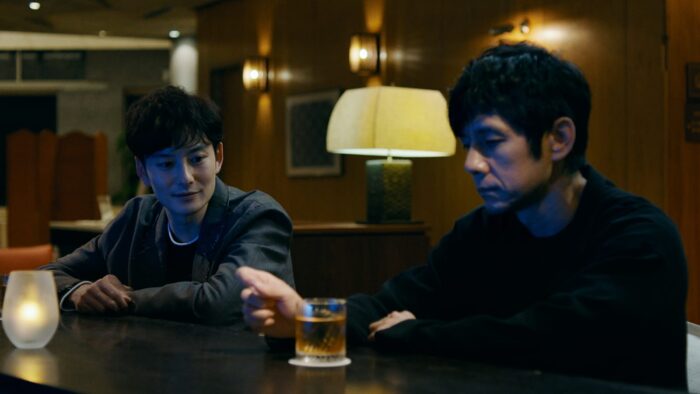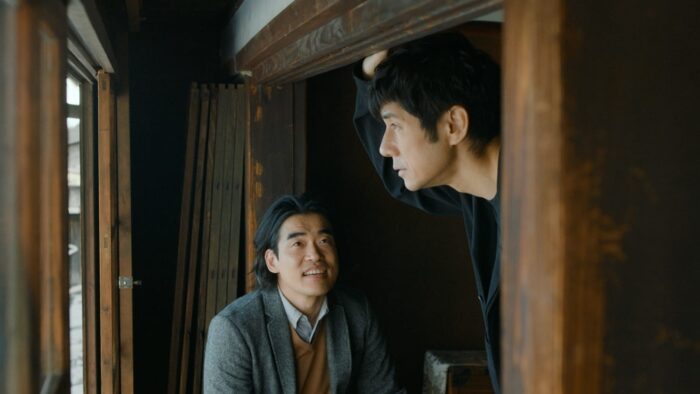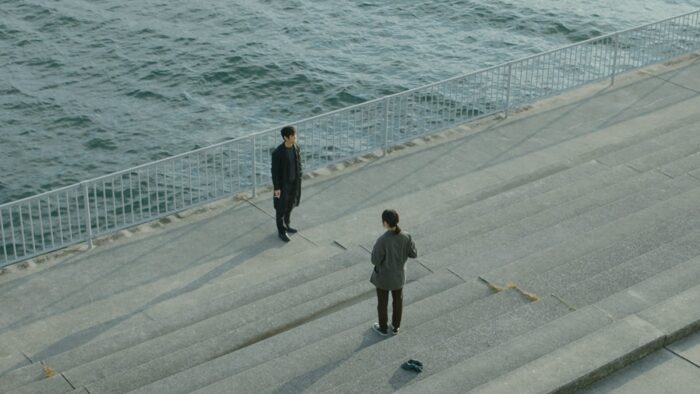
I take solace in knowing that even among cinephiles, my aversion to three hour movies is not unique. Whatever mental barrier there is that stops me from just watching Criterion movies every night all year long is 10 times stronger when it comes to these big boys. And that’s in spite of the fact that some of my all-time favorite movies being super long! I’m sure right around the time Drive My Car got a limited release I was busy finding ways to justify not watching The Beatles: Get Back every night. So long movies are hard to approach. What I need to remind myself is that, once you’re in there, long movies can suck you into them and you don’t even feel the time anymore. And Ryusuke Hamaguchi is one of the best directors to prove that point.

My first exposure to Ryusuke Hamaguchi was early this year, when I saw his follow-up to Drive My Car, Evil Does Not Exist. That movie’s about half as long as Drive My Car, but what it lacks in duration it makes up for in minimalism. It’s a movie set in a very realistic world and mostly about meetings and conversations. Stylistically it’s of a piece with Drive My Car, there are even long car driving conversation scenes. You’re given plenty to think about, but not a lot happens. And that’s a vibe that you’re either going to resonate with or be bored out of your mind by, and far be it for me to judge those in the latter camp. I was lucky enough to be one of the people who enjoyed Evil Does Not Exist and I’m extra grateful I did because it put me in absolutely the right headspace to pick up what Drive My Car.

In a lengthy prologue, we’re introduced to stage actor and director Yusuke Kafuku (Hidetoshi Nishijima) and his screenwriter wife Oto (Reika Kirishima), a couple living in Tokyo and still quietly grieving the death of their young daughter some two decades earlier. One of the ways they cope with their grief is sex — in particular, Oto will narrate stories to Yusuke when they make love and later he will recount them to her and she’ll turn them into her screenplays. One day, after a performance of Waiting for Godot, Oto brings a younger actor, Koji Takatsuki (Masaki Okada) backstage to meet Yusuke. Later, Yusuke comes home unexpectedly early after a trip is delayed and catches Oto having sex with Koji and Yusuke decides to sneak out rather than acknowledging it. Some time later, Oto tells Yusuke she wants to have a serious conversation with him but when he returns home that night he finds her unconscious on the floor. She never wakes up. Roll credits… the opening credits.

One of the most unintentionally funny moves Drive My Car pulls off is having its opening credits play more than 40 minutes into the movie. Two years later, we get to watch Yusuke drive his beloved red Saab 900 Turbo from Tokyo to Hiroshima almost in real time (I kid) and rehearse Uncle Vanya using a tape Oto recorded before she died. He’s on his way to a pretty interesting residency where he’ll be direct a multilingual production of Vanya using a method he innovated using strictly rehearsed timing. But when he gets there his last attachment to his old life is stripped away when the producers tell Yusuke that he cannot drive himself due to insurance reasons and will be required to use a chauffeur. She is Misaki Watari (Toko Miura), a young woman who is as quiet as she is competent behind the wheel. As we watch her slowly back the Saab out of the parking garage, I couldn’t help but think I was watching fully the opposite of The Fast and the Furious: The Slow and the Deliberate.
Yusuke quickly accepts Misaki’s extremely competent driving and sets his focus on Vanya. He and dramaturge Gong Yoon-soo (Jin Dae-yeon) audition a diverse group of actors and it’s just as perplexing a process as you might expect. They ends up casting actors who speak Mandarin, Korean, English, Tagalog, and even one woman, Lee Yoo-na (Park Yu-rim) who is communicates in Korean Sign Language. But the biggest surprise is that he casts Koji in the title role, especially after Koji’s… shall we say intense… audition. Later Yusuke and Koji go out for drinks and Koji admits he had unrequited feelings for Oto and that’s why he was drawn to this production (this is a lie). After that, Yusuke starts drilling his actors on the timing of the play but he seems like a bit of a taskmaster and feint with the praise. And Misaki’s just up there in the driver’s seat keeping quiet. All the lonely people, where do they all come from? All the lonely people, where do they all belong?

Drive My Car is inspired by Haruki Murakami’s short story collection Men Without Women, particularly “Drive My Car,” “Scheherazade,” and “Kino.” With multiple short story titles taken from Beatles songs and the collection itself borrowing its title from Ernest Hemingway, not to mention my own Yusuke-focused recap above, you might think this is a story by boys for boys. But actually Misaki is the heart of Drive My Car, it just takes us a long time to get her to open up to us and there are just as many layers to why she’s in Hiroshima living as a chauffeur as there are in Yusuke refusing to play the part of Vanya himself. Remember, this is a long movie and it moves at a glacial pace, me telling you about it will not make it sound interesting.
And that’s why I’m not Ryusuke Hamaguchi, one of the best technical filmmakers working today. I just don’t know how to explain why this movie works! It is without a doubt beautifully shot, but never in a way that moves you outside of the reality of the story. Taking a short story and lengthening it into a long-ass movie? It shouldn’t work but the profound catharsis Hamaguchi and co-writer Takamasa Oe wring out of it is sublime. The score by Eiko Ishibashi? Beautiful but so minimally used, Hamaguchi is just as comfortable letting us hear the wind and the road and the rain. In many ways this is the opposite experience of my first Criterion Month movie this year, The Trial, but we’ve all got just as much to learn from both.
